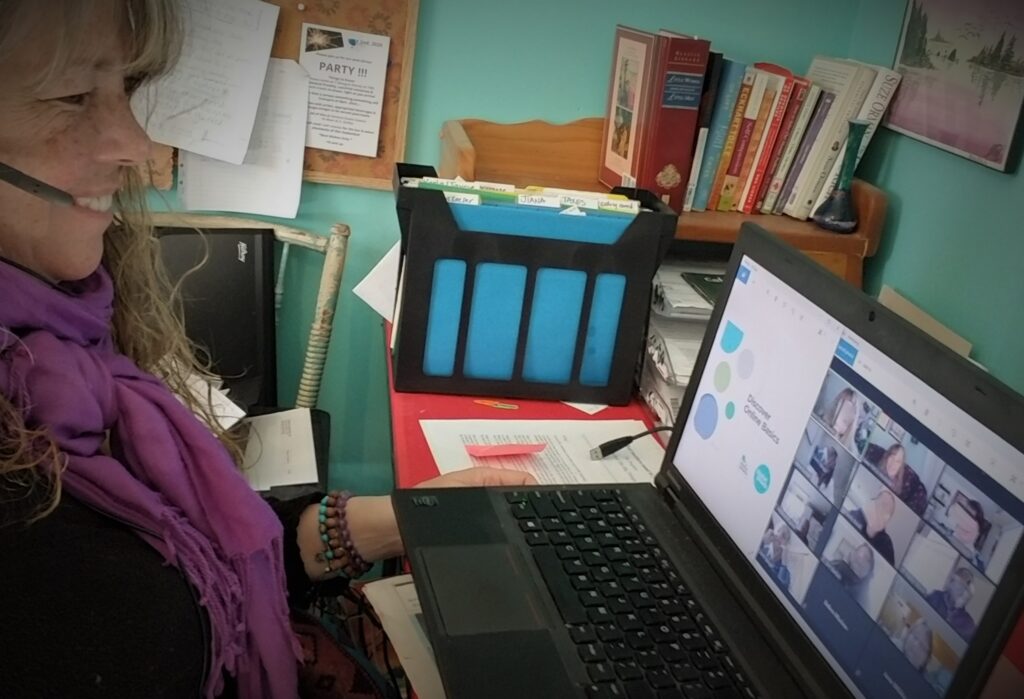This is the question that YWCA program staff grappled with in March when the country went into lockdown due to the COVID-19 pandemic.
We know how important digital literacy is and, this year, as we have moved lives online, it has become even more critical to support people to build these skills.
YWCA Canada and MediaSmarts developed a digital literacy skills program to do just this. Funded by Innovation, Science and Economic Development Canada, DigitalSmarts is a free, easily accessible digital literacy program that covers topics such as online privacy, banking and shopping, and how to use social media and tools such as Facebook and Zoom.
Without social contact or in-person training, instructors were challenged to effectively communicate the basics to program participants. YWCAs transitioned many employment support, counselling, and skills building training programs online and it was an easy transition for those who could follow along with online meeting platforms. For DigitalSmarts participants, however, this was a bigger transition. YWCA staff rose to the challenge by pushing back the starting line, walking participants through how to begin with basic actions like navigating on apps or downloading platforms. Participants struggled with slow wi-fi connections and poor internet access, and instructors ramped up their patience and kindness.
This was definitely the case with the team at YWCA Muskoka. Jiana Cutting, Office Administrator and lead on DigitalSmarts, had incredible success delivering workshops and empowering people across their region and beyond. “The whole premise is fun. It’s been a fulfilling experience for both parties, especially because we are teaching people a tool that they need to know during this time. The turnout has been great, and they don’t feel left out.” said Jiana.
In addition to webinars, Jiana and her co-facilitator would have phone calls with participants who couldn’t sign on or figure out how to get to the app or website. “We would just walk through it step by step. Eventually they would connect to Zoom and we would be able to see them and talk to them and it was wonderful.” Jiana shared. YWCA Muskoka has seen immense progress from seniors who began the program frustrated but have now mastered the navigation of online services and privacy.
Reaching participants who would generally be accessing other in-person programs was also a challenge. Member Associations pivoted and connected with other community partners to reach folks with lower digital literacy. Leah Dormaar, who oversees the DigitalSmarts program at YWCA Lethbridge, weighed in on her experience. “The material is easy to understand and comprehensive, which has been very beneficial to our participants. We have reached out to community partners to get more engagement from the community, but it has been a struggle”.
Jiana, Leah and other YWCA staff have found meaningful ways of connecting to people to help them connect with their loved ones and access services not only for this time of social isolation, but set them up for the changing online world.
YWCA Canada is proud to partner with MediaSmarts to bring digital literacy to more people. This week we mark Media Literacy Week, an annual campaign promoting digital and media literacy across Canada. Schools, libraries, museums and community groups organize events and activities throughout the week. To learn more visit: https://mediasmarts.ca/mlw-events #MediaLitWk
For more information on the DigitalSmarts project, please contact Raine Liliefeldt at raine@ywcacanada.ca.
By Natasha Stephens, YWCA Canada Communications Intern
Photo: Jiana Cutting, from YWCA Muskoka, delivering a DigitalSmarts workshop remotely. Credit: Jiana Cutting
